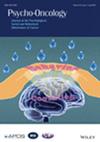Development and validation of the CARE‐FCR: A caregiver‐specific measure of fear of cancer recurrence and progression
IF 3.3
2区 医学
Q2 ONCOLOGY
引用次数: 0
Abstract
ObjectivesFear of cancer recurring or progressing (FCR) is a concern reported by people living with cancer and caregivers alike. Whilst advances in survivor FCR have been made, less is known about caregiver FCR. As a result, measurement of caregiver FCR has relied on instruments developed for survivor populations. Findings from qualitative research indicate caregiver experiences of FCR differ. This study aimed to develop and evaluate the psychometric properties of a caregiver specific measure of FCR (CARE‐FCR).MethodsFour‐hundred and thirty‐eight caregivers (56% female,开发并验证 CARE-FCR:一种针对护理人员的癌症复发和恶化恐惧测量方法
目标癌症复发或进展恐惧(FCR)是癌症患者和照顾者都关心的问题。虽然在幸存者 FCR 方面取得了进展,但对照顾者的 FCR 却知之甚少。因此,对照顾者 FCR 的测量一直依赖于为幸存者人群开发的工具。定性研究的结果表明,照顾者对 FCR 的体验各不相同。本研究旨在开发和评估护理者 FCR 专门测量工具(CARE-FCR)的心理测量特性。方法438 名护理者(56% 为女性,年龄 = 50.53 岁,SD = 17.38)完成了在线调查,包括人口统计学问题、所提供护理的相关信息、所护理的对象以及 CARE-FCR。通过对复发和进展恐惧、抑郁、焦虑、死亡焦虑和元认知的已有测量进行了聚合效度评估。大五人格特质问卷的外向性维度用于评估发散有效性。调查在两周后完成,以评估重测可靠性。探索性因子分析(EFA)用于确定因子结构,然后进行确认性因子分析。聚合可靠性、发散可靠性和测试-再测可靠性均符合要求。CARE-FCR 的内部一致性很强,总体 Cronbach's α = 0.96(进展 = 0.94,复发 = 0.92,沟通 = 0.78)。CARE-FCR有助于量化照顾者FCR,捕捉到了这一人群特有的方面。
本文章由计算机程序翻译,如有差异,请以英文原文为准。
求助全文
约1分钟内获得全文
求助全文
来源期刊

Psycho‐Oncology
医学-心理学
CiteScore
6.30
自引率
8.30%
发文量
220
审稿时长
3-8 weeks
期刊介绍:
Psycho-Oncology is concerned with the psychological, social, behavioral, and ethical aspects of cancer. This subspeciality addresses the two major psychological dimensions of cancer: the psychological responses of patients to cancer at all stages of the disease, and that of their families and caretakers; and the psychological, behavioral and social factors that may influence the disease process. Psycho-oncology is an area of multi-disciplinary interest and has boundaries with the major specialities in oncology: the clinical disciplines (surgery, medicine, pediatrics, radiotherapy), epidemiology, immunology, endocrinology, biology, pathology, bioethics, palliative care, rehabilitation medicine, clinical trials research and decision making, as well as psychiatry and psychology.
This international journal is published twelve times a year and will consider contributions to research of clinical and theoretical interest. Topics covered are wide-ranging and relate to the psychosocial aspects of cancer and AIDS-related tumors, including: epidemiology, quality of life, palliative and supportive care, psychiatry, psychology, sociology, social work, nursing and educational issues.
Special reviews are offered from time to time. There is a section reviewing recently published books. A society news section is available for the dissemination of information relating to meetings, conferences and other society-related topics. Summary proceedings of important national and international symposia falling within the aims of the journal are presented.
 求助内容:
求助内容: 应助结果提醒方式:
应助结果提醒方式:


